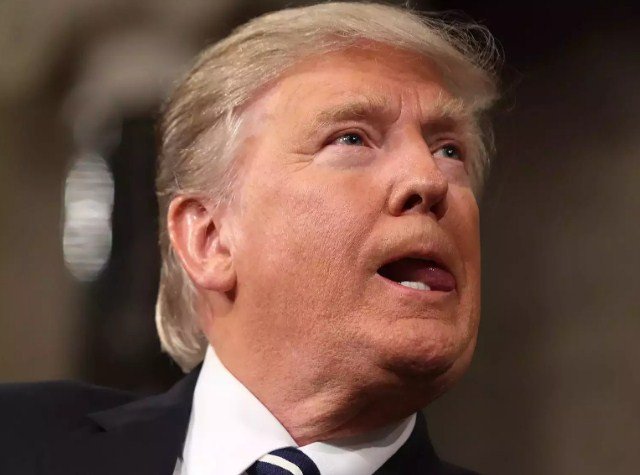Former President Donald Trump has been indicted by a grand jury in Georgia on 13 charges related to his efforts to overturn the 2020 presidential election in the state. The indictment, which was unsealed on Monday, also names 18 co-defendants who allegedly participated in a racketeering conspiracy with Trump.
Trump accused of violating RICO Act
The most serious charge in the Georgia case is violating the state’s Racketeer Influenced and Corrupt Organizations Act, commonly known as RICO. The law was originally designed to target organized crime, but has been used to prosecute a wide range of criminal enterprises.
The indictment alleges that Trump and his co-defendants engaged in a pattern of racketeering activity that included:
- Pressuring Georgia officials, including Secretary of State Brad Raffensperger and Governor Brian Kemp, to overturn the election results in favor of Trump.
- Assembling a slate of false electors who claimed to represent Georgia in the Electoral College, despite the state’s certification of Joe Biden’s victory.
- Submitting documents that contained false or misleading statements about voter fraud and election irregularities in Georgia.
- Attempting to enlist the Justice Department and other federal agencies to support Trump’s pressure campaign on Georgia.
- Influencing or intimidating witnesses who testified or planned to testify about election issues in Georgia.
The RICO charge carries a maximum penalty of 20 years in prison and a fine of up to $25,000.
Trump faces other felony charges
In addition to the RICO charge, Trump is also accused of six counts of making false statements and writings, three counts of soliciting the violation of oath by a public officer, two counts of conspiring to commit first-degree forgery, and one count of conspiring to impersonate a public officer.
Some of these charges stem from Trump’s infamous phone call with Raffensperger on January 2, 2023, in which he asked him to “find” enough votes to overturn Biden’s win. The indictment alleges that Trump knowingly made false statements about the number of votes he received, the number of ballots that were destroyed or tampered with, and the reliability of the voting machines used in Georgia.
Other charges relate to Trump’s efforts to persuade Kemp to convene a special session of the state legislature to appoint pro-Trump electors, and to pressure former acting Attorney General Jeffrey Rosen to intervene in Georgia’s election. The indictment also accuses Trump of submitting forged documents that purported to show evidence of voter fraud, and of impersonating a public officer by claiming to have authority over Georgia’s election process.
Some of these charges entail mandatory minimum prison sentences under Georgia law. For instance, if convicted of conspiring to solicit a public official to violate the oath of office, Trump would face a minimum one-year prison term.
Trump faces televised trial in Georgia
Unlike in New York, Florida and Washington, D.C., where Trump is also facing criminal charges, televised court proceedings are more common in Georgia. This means that interested viewers will be able to follow along as Trump and his co-defendants face trial in Fulton County, where Atlanta is located.
The trial is expected to be a complex and lengthy affair, given the number of defendants and the scope of the allegations. The indictment lists 41 counts in total, but only 13 apply to Trump himself. The other 28 counts are distributed among 18 co-defendants, who include former White House chief of staff Mark Meadows, former attorney Sidney Powell, former national security adviser Michael Flynn, and several state lawmakers and activists who supported Trump’s election challenge.
Each defendant will likely have their own legal counsel and strategy, which could create conflicts and complications during the trial. Some defendants may seek plea deals or cooperate with prosecutors in exchange for leniency. Others may try to distance themselves from Trump or blame him for their actions. And some may adopt a defiant stance and claim that they were acting in the best interest of democracy.
The trial will also be a test for Fulton County District Attorney Fani Willis, who took office in January 2023 and launched the investigation into Trump shortly after. Willis is a Democrat who has faced criticism from some Republicans for pursuing a politically motivated case against Trump. She has defended her decision as based on the evidence and the law, and vowed to hold anyone who committed crimes accountable.
Trump denies wrongdoing and claims persecution
Trump has denied any wrongdoing and dismissed the Georgia indictment as part of a “witch hunt” against him by his political enemies. He has accused Willis of being a “rogue prosecutor” who is “criminalizing dissent” and trying to overturn the will of millions of voters who supported him.
In a statement released by his campaign on Tuesday, Trump said that he was “proud” of his efforts to “expose the massive corruption” in Georgia’s election system. He claimed that he had “absolute proof” that he won Georgia by a landslide, and that Biden’s victory was “rigged” by Democrats and their allies in the media and the tech industry.
Trump also used the indictment as an opportunity to raise funds for his legal defense and his political future. He urged his supporters to donate to his “Save America” political action committee, which he said would help him fight back against the “communist” forces that are trying to destroy him and the country.
Trump’s campaign also sent out a fundraising email that featured a video of him speaking at a rally in Alabama on Saturday, where he repeated his false claims about the election and attacked his critics. The email said that Trump was “under attack like never before” and needed the help of his loyal followers to “save America from the radical left.”

